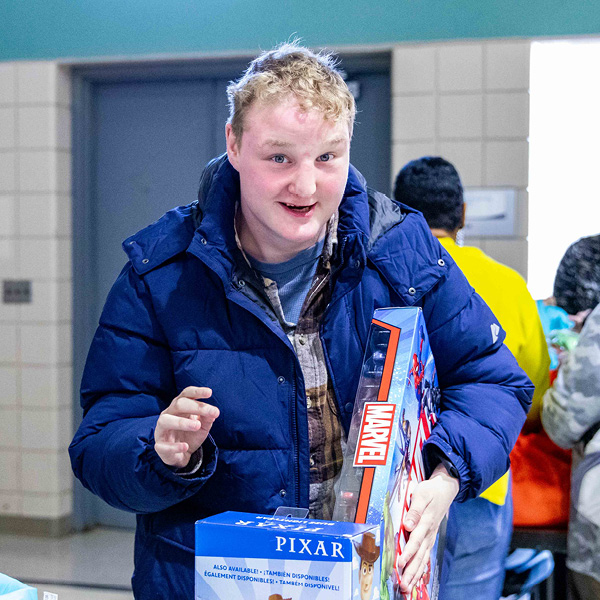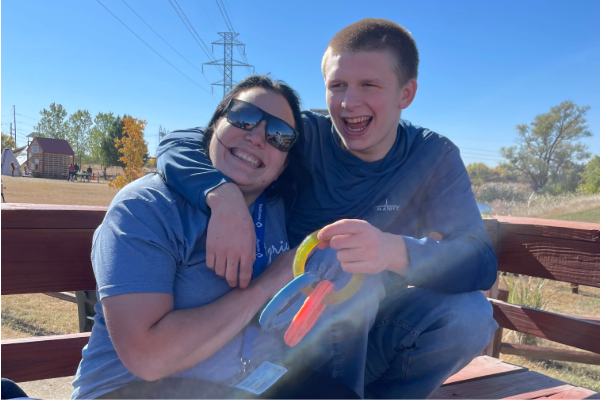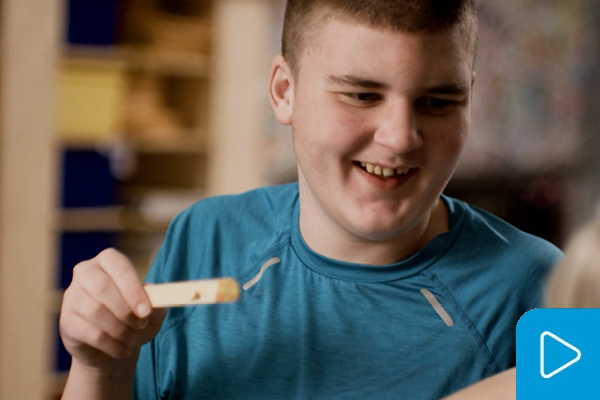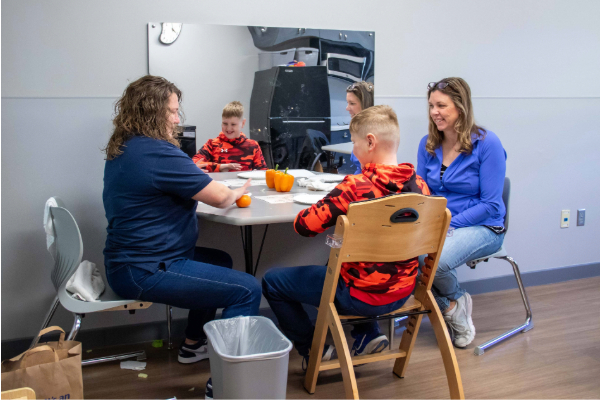4 MIN READ
A Family’s Journey Navigating the Heartspring Therapeutic & Residential Day School
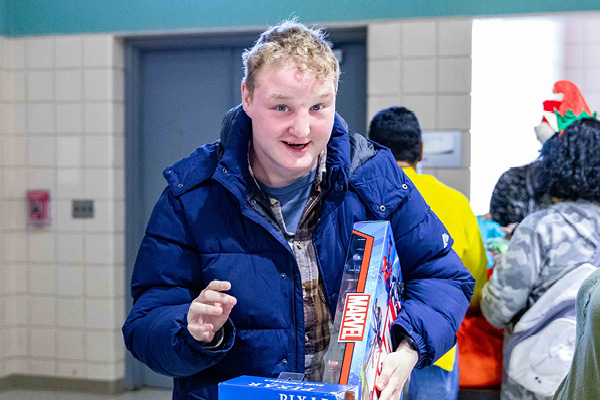
The Heartspring Therapeutic Residential & Day School serves children aged 5-22 years old with at least one neurodevelopmental disorder diagnosis. Most families find our school when their home school districts refer them to us for our residential program.
We see kids from all around the country, but we know it’s never an easy choice to send your child away for the education and care they need. However, when a child exhibits challenging behaviors like self-injury or aggression toward others, parents, caregivers, and school districts need to make a judgment call on behalf of the child’s best interests.
One of our families found that Heartspring was the best option for their son and their family’s needs. But as Illinois residents, they initially resisted an out-of-state option for their son, Ty.
However, during a tour of one of our group homes, his mother, Kelly, said,
“It brought me to tears because I could envision him here and being happy and successful.”
Ty’s been at Heartspring for more than 12 years. He’s made so much progress over the years, and he’s grown into a charming young man. According to Kelly, “He’s funny, has a lot of personality, makes a lot of people laugh, but he has a lot of challenging behaviors.”
Ty’s smile is contagious at Heartspring. He visits our administrative offices and makes appointments with various staff members (we all not-so-secretly hope we’re chosen). He even delivers Meals on Wheels with his classmates — just like his grandpa back home! At Heartspring, he’s had the support to address his challenges with the freedom to grow into his own unique personality.
There were a lot of questions and fears Ty’s family had to consider when they enrolled Ty at Heartspring. “Who puts a nine-year-old out-of-state?” Kelly asked. “I struggled with the loss of control, the fear of how other parents might think of me, and how I felt about myself because I couldn’t give him the help that he needed. We were lucky enough to know another family who did it, and it’s almost like it gave me permission that it’s going to be okay.”
Most families find Heartspring after they've explored local options and still aren't seeing progress. We specialize in caring for children with challenging behaviors and developing Individualized Education Programs (IEPs) that call for therapeutic special education and residential treatment.
“We got to a point where his self-injurious behavior was getting dangerous,” Kelly said. “When you live with that day-to-day, you almost become desensitized to it.”
It wasn’t until she was in a meeting with a special education caseworker in her son’s school district that she recognized how much they were struggling to function as a family.
Understanding the state would only consider a residential program for children and families in crises, she didn’t think it was an option. The caseworker looked at her in bewilderment and said, “Kelly, what do you think you’re in? This is crisis mode.”
After this meeting, they started looking in earnest for a residential program that would holistically address Ty’s needs. They wanted him to have a consistent experience across every level of care he'd receive.
“I told my school district what I wanted, and they said it didn’t exist,” Kelly said. “I went in with low expectations when I was looking, but when I came to Heartspring, it was the perfect integration of school, medical, therapy, and home.”
On top of consistency across Ty’s environments, she liked Heartspring’s interdisciplinary approach when it came to his behavior plan and goals.
“When you’re a parent at home, it’s so hard to see progress because you're so focused on survival,” Kelly said. “This is a place where they’re actively tracking the progress he’s making, and I can see it on a piece of paper.”
They were determined to make Ty’s new arrangement work for their family.
“We committed to being here once a month. We wanted to know what kind of care he’s getting,” Kelly said. “The first year, I didn’t take him off campus that much. I wanted to spend time with him in the group home. I wanted to get to know the staff taking care of him, and I followed them around as they worked with him.”
She said this helped her experience things from Ty’s perspective and get to know the care professionals working with her son. It was important for her to form relationships with his staff and to be comfortable with one another.
“Heartspring helped us build kind of an extended family for him,” Kelly said.
“You can just feel the love that’s here from everyone. Everyone has a story to share about him, even people in the office.”
While Heartspring may be farther away than Ty’s family would like, it’s opened doors they didn’t realize were possible. For example, Ty now travels home on an airplane with one of his parents escorting him to and from our campus twice a year. During these trips, they’ve never had a behavior in the airport or in the car, because now Ty’s equipped with the skills to communicate and regulate himself. Before Heartspring, his parents would have never traveled alone with him in the event he had a behavior they couldn’t handle alone.
“We couldn’t have made this kind of progress at home,” Kelly said. “We couldn’t have made this progress in the therapeutic day school. It’s all because he’s here at Heartspring.”
Once Ty graduates from Heartspring, his family is hoping to find him an adult group home closer to their home in Illinois, but they’re trying not to think too far into the future so they can enjoy where he’s at now.
For other parents who’re starting their own residential school journeys, Kelly has some advice:
“You have to make the decision that you’re doing what’s best for your child, and really letting the experts handle what you’ve tried to handle at home but feel like you’re kind of lost,” Kelly said. “You don’t have to live in chaos anymore. You can see them thrive and be happy.”

